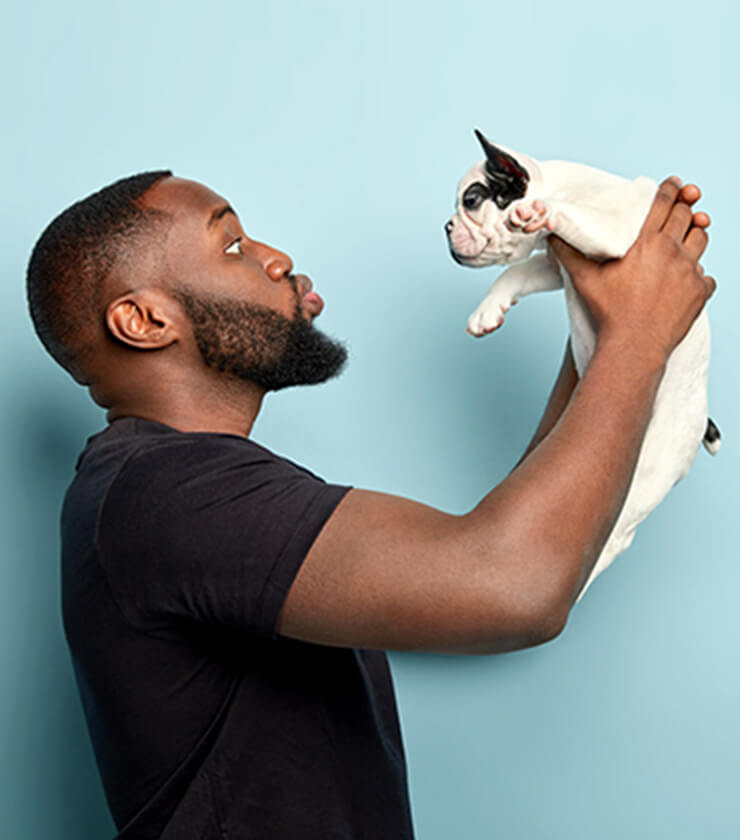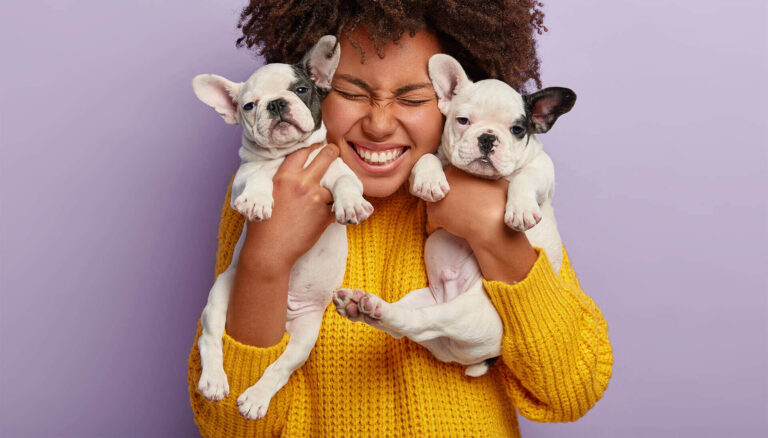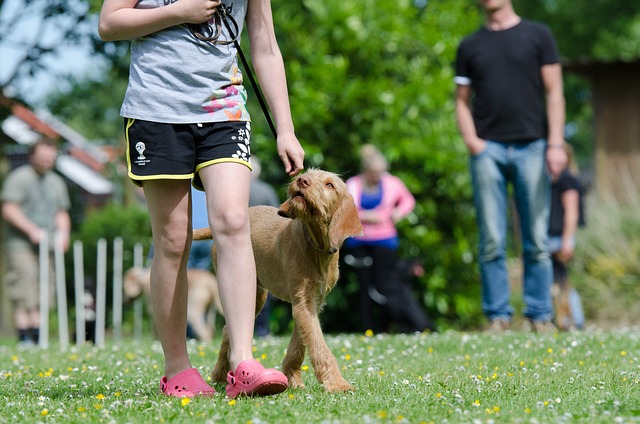Are you ready to embark on the incredible journey of dog ownership? Congratulations! Few experiences are as rewarding as the companionship and love that a dog can bring into your life. However, with hundreds of dog breeds to choose from, finding the perfect match for your lifestyle and preferences can be a daunting task, especially if you’re a young adult between the ages of 20 and 35.
In this comprehensive guide, we will walk you through the process of selecting the right dog breed for you. We understand that young adults often face unique considerations, such as busy schedules, limited living space, and a desire for a dog that complements their active lifestyle. By the end of this article, you’ll be well-equipped to make an informed decision and choose a dog breed that will become your cherished companion.

1. What’s Your Lifestyle Like?
Your lifestyle plays a significant role in determining the most suitable dog breed for you. Before bringing a dog into your life, take a moment to assess your daily routine. Are you an early riser who enjoys morning jogs, or do you prefer cozy evenings at home? Understanding your lifestyle is the first step in finding the right fit.
If your days are packed with work or social activities, you might want to consider a breed that doesn’t require constant attention and exercise. Breeds like Bulldogs, French Bulldogs, or Cavalier King Charles Spaniels are known for their lower energy levels and can adapt well to a less active lifestyle.
On the other hand, if you’re an outdoorsy person who enjoys hiking, running, or spending time at the dog park, you may be better suited to a high-energy breed like a Labrador Retriever, Australian Shepherd, or Border Collie. These breeds thrive on physical activity and make excellent companions for active individuals or families.
2. How Much Time Can You Dedicate to Your Dog?
Time is a precious commodity, and dogs require their fair share of it. Consider how much time you can realistically dedicate to your furry friend each day. All dogs need exercise, mental stimulation, and quality time with their owners.
If your work schedule keeps you away from home for long hours, you may want to choose a breed that’s more independent and can tolerate being alone. Breeds like Shih Tzus, Basset Hounds, or Chihuahuas are known for their ability to adapt to solitude and are often good choices for busy individuals.
On the flip side, if you have the flexibility to spend significant time with your dog, you can consider breeds that thrive on companionship and social interaction. Breeds like Golden Retrievers, Beagles, or Boxers are known for their friendly and people-oriented nature, making them great choices for those with more time to invest in their pet’s well-being.

3. Do You Have Allergies?
Allergies can be a significant consideration when choosing a dog breed, especially if you or someone in your household is allergic to pet dander. While no dog is entirely hypoallergenic, some breeds produce fewer allergens and are more suitable for allergy sufferers.
Hypoallergenic breeds like Poodles, Maltese, and Bichon Frises have hair instead of fur and shed less dander, making them a better choice for people with allergies. However, it’s essential to note that individual reactions can vary, so spending time with a dog from the chosen breed before bringing one home is advisable.
If you’re not specifically looking for hypoallergenic breeds, you can still manage allergies with regular grooming, vacuuming, and maintaining a clean living environment. Consider investing in high-efficiency particulate air (HEPA) filters to reduce allergens in your home.
4. What’s Your Activity Level?
Your personal activity level and exercise routine should align with the energy requirements of the dog breed you choose. Dogs need regular exercise to stay healthy and happy, and the amount of physical activity they require can vary significantly between breeds.
If you’re an active person who enjoys daily runs, hikes, or outdoor adventures, you’ll want a dog that can keep up with your pace. Breeds like Labrador Retrievers, German Shepherds, and Australian Shepherds are known for their high energy levels and enthusiasm for physical activities. These dogs will relish the opportunity to accompany you on your adventures.
On the other hand, if your idea of a perfect day involves less strenuous activities like reading a book in the park or enjoying a leisurely stroll, consider breeds with lower energy levels. Bulldogs, Shih Tzus, and Pugs are content with shorter walks and are less demanding in terms of exercise.

5. What Size Dog Suits Your Space?
The size of your living space plays a significant role in determining the appropriate dog size. If you live in a compact apartment or a home with limited outdoor space, a smaller dog may be more suitable. Small breeds like Dachshunds, Chihuahuas, and Boston Terriers are well-suited to apartment living and don’t require as much room to roam.
However, if you have a spacious yard or live in a larger home, you might have more flexibility when it comes to choosing a larger breed. Medium to large breeds like Golden Retrievers, Labrador Retrievers, or Siberian Huskies can thrive in larger living spaces, provided they receive adequate exercise and mental stimulation.
It’s essential to ensure that your chosen breed’s size aligns with your home’s layout and that you have enough space to accommodate their needs comfortably.
6. Are You Looking for a Specific Temperament?
Dogs come in a wide range of temperaments and personalities, and finding one that matches your preferences is crucial for a harmonious relationship. Some people prefer affectionate and outgoing dogs, while others may gravitate towards more independent or reserved breeds.
If you’re seeking an affectionate and social companion, breeds like Golden Retrievers, Labrador Retrievers, and Cavalier King Charles Spaniels are renowned for their loving nature. These dogs thrive on human interaction and are often excellent choices for families and individuals looking for devoted pets.
On the other hand, if you prefer a more independent or aloof dog, breeds like Basenjis, Shiba Inus, or Afghan Hounds may be more to your liking. These breeds can be less overtly affectionate but still form strong bonds with their owners.
It’s essential to consider your own personality and lifestyle when choosing a breed with a compatible temperament. A good match in temperament will ensure a smoother and more enjoyable coexistence.
7. How About Grooming Needs?
Grooming needs can vary widely between dog breeds, and it’s important to select a breed whose grooming requirements align with your preferences and lifestyle. Some dogs require frequent brushing, while others may need regular visits to the groomer.
Low-maintenance breeds like Beagles, Boxers, and Doberman Pinschers have short coats that require minimal grooming. These breeds are suitable for individuals who prefer a fuss-free grooming routine.
On the other hand, breeds with longer or double coats, such as Poodles, Shih Tzus, and Yorkshire Terriers, require more frequent grooming to prevent matting and maintain their appearance. Regular brushing, baths, and occasional professional grooming
Want to learn how to train your pets? Check out this book:
The Best GUIDE on How to Train your Dogs & Cats
POWERFUL AND PRACTICAL:our most powerful dryer with 2800W of adjustable airflow and temperature settings of 30C-55C for gentle warming or a hot explosion.